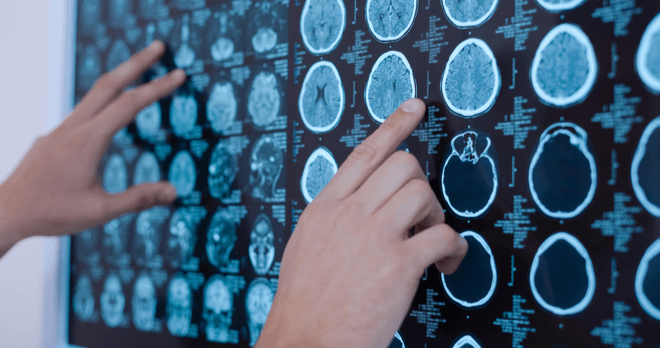What you need to know about brain tumours

According to the NHS, more than 11,000 people are diagnosed with a primary brain tumour in the UK each year. Brain tumours can happen to anyone; they effect all people of all ages, although they do tend to be more common in the older population. Only about 50% of tumours are cancerous though, despite the fact some people are diagnosed with a secondary brain tumour following diagnosis of a primary cancer in another area of the body.
As a quick rule of thumb, tumours are graded by how fast they grow – Grade 1 being low grade and Grade 4 high grade. Typically, but not exclusively, low grade ones are benign (non-cancerous) and high-grade ones are malignant (cancerous).
Whatever the grade of tumour, as with many diseases, earlier diagnosis can make a significant different to outcomes.
Symptoms to look for in adults
This is not an exhaustive list and symptoms may come on suddenly or very slowly:
- Headaches
- Persistently feeling sick (nausea) or actually being sick (vomiting) and dizziness
- Vision or speech problems
- Mental or behavioural changes, such as memory problems or changes in personality
- Loss or change of smell and taste
- Progressive weakness or paralysison one side of the body
- Seizures
- Extreme tiredness
As the brain is the body’s control centre, where the tumour is in the brain can affect the body in completely different ways. If you have been experiencing any of these symptoms then speak to your GP, especially if there is no obvious cause. If you are having problems with your vision you may also wish to see your optician for review.
Symptoms to look for in children
The symptoms listed above also apply to children. Although there is much less risk of them developing brain tumours in the first place, there is sadly a significantly higher risk that it will not be diagnosed quickly. Other symptoms to be aware of in children are:
- Balance problems
- Behaviour changes
- Abnormal head position – problems with the neck
- Abnormal growth
- Delayed puberty
- Excessive thirst
Again, if your child has been experiencing any of these symptoms then speak to your GP and speak to them again if you are not satisfied. It is very difficult in these situations, especially with a very young child, for them to have a voice and be able to articulate what they are feeling and what is wrong. Parents I have worked for have felt their concerns were not listened to when seeking a diagnosis which led to avoidable delays.
So, if you have any symptoms, get them checked out. At best it will put your mind at ease or provide treatment for what is not a brain tumour. At worst, you will get an unexpected and worrying diagnosis, but it will put you on a treatment pathway sooner rather than later.
If you or a loved one have had a diagnosis you were not expecting, then you are not alone and there are huge amounts of information and help available – some links are listed below:
https://www.braintumoursupport.co.uk/btam2022
www.cancerresearchuk.org/about-cancer/brain-tumours
www.thelewismoodyfoundation.org
Finally, spread the word about brain tumour symptoms. Awareness is a huge part of the fight for early diagnosis.